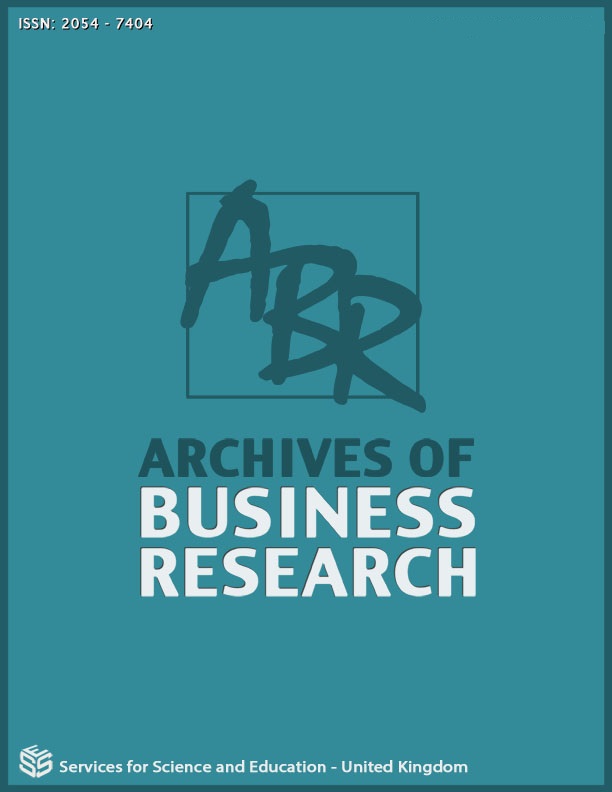Evidence of Geopolitical Risk and Economic Policy Uncertainty on Equity Prices in Emerging Markets
DOI:
https://doi.org/10.14738/abr.122.16548Keywords:
Downside risk, Economic policy uncertainty, Geopolitical risk, Safe haven, Asset pricing, Asian marketsAbstract
This paper presents evidence of the impact of changes in downside risk , economic policy uncertainty ( ), the geopolitical risk ( ) in six Asian equity markets while controlling for COVIDE-19. Applying the month data for the period of 1990.01– 2021.12 to Asian markets, evidence shows that national stock returns are negatively correlated with and , suggesting that these risk/uncertainty factors harmfully affect stock markets. Evidence shows that a rise in U.S. geopolitical risk adversely spillovers to Asia stock markets. Spreads of COVID-19 damage local stock returns via interacting with changes in EPU and GPR. Purpose: Present evidence of COVIDE-19 and the impact of changes in downside risk , economic policy uncertainty ( ), the geopolitical risk ( ) with different forms of nonlinear specifications in six Asian equity markets. Design/methodology/approach: The rolling regression method is used to derive time-varying coefficients of investors’ response to changes of policy uncertainty, which is sensitive to react to other uncertainty variables. Findings: Evidence shows that national stock returns are negatively correlated with and , suggesting that these risk/uncertainty factors adversely affect local stock markets. In addition, the evidence shows that a rise in U.S. geopolitical risk ( ) can adversely spillover to domestic stock markets. A spillover effect is found from COVID_19 development. Research limitations/implications: The findings are based on data from six Asian markets. More data may be collected, which would expand the analysis to a broader coverage of the global market. Practical implications: Evidence suggests that in addition to the risk from financial markets, the geopolitical risk (GPR) and COVID-19 are important factors in determining whether a risk premium should be received. From a policymaker’s point of view, geopolitical stability is the foundation for maintaining financial market stability. Originality/value: This paper presents evidence on the time-varying behavior of investors’ response to In addition to and the , the nonlinear components of , U.S. and interaction to COVID-19 have a harmful effect on national stock prices in Asian markets.
Downloads
Published
How to Cite
Issue
Section
License
Copyright (c) 2024 Thomas C. Chiang, Pei-Ying Chen

This work is licensed under a Creative Commons Attribution 4.0 International License.






